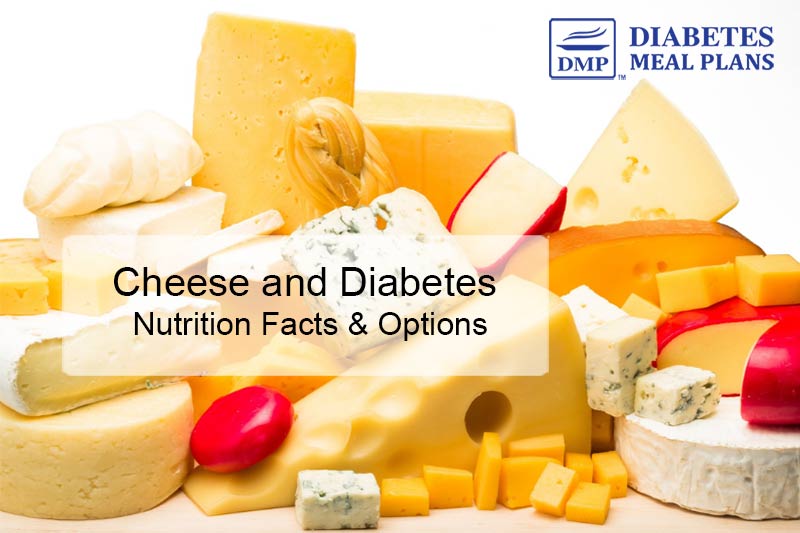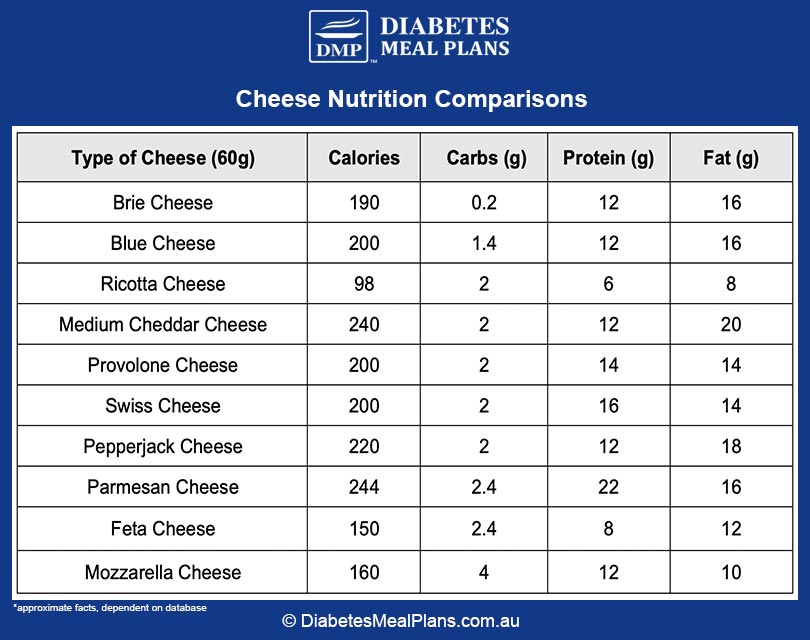There’s nothing quite like a scrumptious, creamy piece of cheese for a snack or adding grated cheese to melt over a meal. But what about cheese and diabetes or prediabetes – is it okay to eat?
Great question. Let’s dig into that further below.

It’s true that cheese has sparked a bit of controversy. After all, cheese is high in protein, but what about all the fat? Will it clog your arteries, lead to high cholesterol and cause a heart attack?
Research suggests that’s unlikely to occur. In fact, studies show weak connection or no connection between saturated fat intake and heart disease risk – that is a myth we really all need to get past!
Your body can’t survive without fat, because it needs it to support cellular growth and produce energy, along with aiding important fat soluble vitamins and hormones to do their job.
Fat is an essential nutrient!
Cheese Nutrition Facts
One slice of cheddar cheese (28g) contains 113 calories, 6.4 grams of protein, 9 grams of fat and close to zero carbohydrates (0.8 grams).
The main macronutrients in cheese are fat and protein. In terms of fat, cheese contains a mixture of both saturated and unsaturated fats – 6 grams saturated and 3 grams unsaturated.
Cheese is a nutrient dense food that provides several valuable micronutrients (per slice):
- Calcium – 199 mg
- Phosphorus – 127 mg
- Vitamin A – 348 IU
- Vitamin D – 7 IU
The other good news about cheese is that it’s very low in carbohydrates, especially cheddar and mozzarella cheese, which contain virtually zero carbs (less than 1 gram).
Cheese Nutrition Comparisons

As you can see by the chart, cheese is low in carbs, which makes it a good companion for blood sugar control.
Research on Cheese and Diabetes
Overall, research studies suggest that eating dairy or cheese is not harmful for people with type 2 diabetes, and could even have some benefits.
Elwood et al. (2010) found that milk and dairy products might actually help protect against heart issues and improve blood sugar control for people with type 2 diabetes.
Turner et al. (2015) investigated the effects of dairy consumption on insulin sensitivity in people with and without type 2 diabetes. They discovered that overall, eating dairy didn’t make a significant difference to insulin sensitivity in those with type 2 diabetes.
Drouin-Chartier et al. (2016) looked at whether eating dairy products, like cheese, increased the risk of heart-related issues in people with type 2 diabetes. Good news: they found no increased risk of heart problems from eating dairy products.
Brassard et al. (2017) found similar effects of cheese and butter on heart health and type 2 diabetes factors, including improvements in HDL cholesterol, blood sugar, and blood pressure.
Recommendation: Cheese for Diabetes, Yes or No?
Cheese is a definite YES for people with type 2 diabetes and prediabetes. Both full fat and low fat options can be good choices.
When following a lower carb diet, such as the one we recommend here at DMP, cheese provides a nutrient dense source of protein, fat and valuable micronutrients.
What about cheese and cholesterol?
In general, dairy products will not have a negative impact on cholesterol in most people, and the research indicates dairy products may increase HDL “good” cholesterol, which is a good thing.
If you do have issues, sometimes it can be good to experiment with modifying dairy intake. For example, you can switch to low fat options, or reduce your overall intake.
Cheesy Pumpkin Puffs
These is one of our favourite recipes, and the favourite of many others too, so please give it a try!
With just 5 ingredients, they can’t get much easier. Make a batch and keep them in the fridge to grab for breakfast, lunch or a snack.


